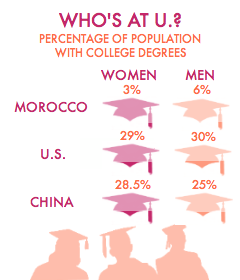
October 2, 2012 | Violence Against Women
Woman of the Week: Mimi Chakarova

Bryan Shih ©2011
In 1990, Mimi Chakarova left her native Bulgaria at age 13, traveling with her mom to start a new life in the United States. Returning two years later, she found out she was one of the lucky ones. Many of her peers had traveled overseas to find work so they could send money home to support their impoverished families. Many were never heard from again.
“I thought it was highly unusual to not keep in touch with your family, that you would almost disappear in a foreign land,” she said. “People didn’t really know where their granddaughters were.”
Years later, in the mid-1990s, Chakarova spotted reports in newspapers detailing the growing sex industry largely stemming from Eastern Europe. Her thoughts flew back to Bulgaria, to the girls she had known growing up.
“I thought, how could this be? Could this have happened to some of the girls I grew up with?”
As a photojournalist experienced in conflict zones, she knew the issue merited investigation. But the salacious tenor of the coverage – often produced by male journalists who posed as clients, paying for an hour’s services and using it to interview and take photographs in situ -- disturbed her.
“They’d go into a room and photograph these women in such a compromised environment. ”
Chakarova, now 35, knew she could channel her anger productively. She resolved to tell their stories herself, the way she thought they deserved to be told, using images, text and audio.
“I thought, rather than sit here and complain and shake my head, why don’t I try to go deeper? Why don’t I try to, first of all, answer the question which is why did they leave?”
Her answers - the fruits of nearly ten years’ labor - can be found in the multimedia investigative project, which she produced with the Berkeley-based Center for Investigative Reporting, and the subsequent award-winning documentary film, The Price of Sex. Chakarova spoke to the Women in the World Foundation about the many layers of trafficking and the impact her work has had on her and her subjects.
The title of your project, "Price of Sex," is so simple, but it’s so descriptive. Can you tell me how the title came to be and what it means to you?
In 2006 I was doing a story for Frontline World about trafficking in Dubai. I remember having a meeting with the executive producers to go over some of the details, and they said, “So what are we going to call it?” I hadn’t yet come up with a title, but I remembered them saying, “Well, whatever it is, make sure it has ‘sex’ in the title.”
Driving in home in traffic, I thought, “That is so obnoxious. I can’t believe this.” That really cheapens it for me--that it has to have sex in the title. But I think it forced me to really think of something which has multiple meanings.
So what is the price of sex? The price of sex is what a lot of these women have paid. It’s the degradation of their spirit. It’s what is left of a lot of these women. That’s the price they have paid for being sold into this. And, of course, there are literal meanings as well.
Ever since the project began as a multimedia site, you have had resources to learn more and to help viewers get involved with the issue of trafficking. What impact has the film had for the subjects over the years?
The girls who are featured in the film have no access to the internet. You have to understand the conditions in which they live. It’s not like they can take a laptop and log in and see it. But one of the subjects, Jenea, needed serious medical attention and, because of the multimedia story on the site, the many people who had watched the 2 to 3 minute piece started sending donations, and she was able to get surgery. So they’re not aware of the title of the piece, but they are aware of the fact that there’s an outcome of having told their stories.
The unfortunate thing is, even though we could have ended the film on an optimistic or hopeful note, that would have been hitting a false note, because it doesn’t show the other women in similar situations whose stories aren’t heard.
A lot of them don’t end up surviving. They can’t tell their stories. When you think about structuring something or putting together a global message for a global community, you have to think about what is the most realistic tone in telling the story and ending with something that feels almost like a -- I don’t want to say happy ending because it’s never a happy ending-- is unrealistic. This has been one of the criticisms for the film, that it’s a really heavy documentary. It is a very heavy documentary because of the subject matter. People’s lives are destroyed and it’s not easy to fix something that has been broken so many times.
One criticism I’ve read about coverage of sex trafficking in general is that it takes attention away from other more prevalent forms of trafficking, such as trafficking for labor, because it has the word “sex” in it. How do you respond to that?
I think it’s absolutely true. I think labor trafficking exists on a much, much, much larger scale than sex trafficking. I also think labor trafficking is a lot more difficult to document because it happens in everything and it exists literally everywhere - factories, fields, homes. It happens with women cleaning houses, which can result in sexual abuse as well.
Going into this, I knew that labor trafficking is an issue that definitely needs more coverage, but you also have to choose your battles. People also asked why I don’t go to other locations, and why did I focus on Eastern Europe, Turkey and Dubai?
Well, because I have a connection to these places. After the collapse of communism, things changed there dramatically. I had the opportunity to address something that really interests me, that I think that everyone should be thinking about, which is social systems. What happens when social systems collapse? What happens with gender? How do we treat each other? How do they treat women? What happens to patriarchal societies? In Eastern Europe and in the Balkans, it’s very patriarchal, so how are girls treated differently than boys? Why is it that parents are not asking questions about their missing daughters that they would if their sons were missing? To me this issue of gender, economic opportunities and social systems that are completely degraded and fallen apart is much more interesting to explore and to get people to think about.
After ten years of covering sex trafficking, how much longer do you plan to stay with this topic? How has it affected you personally to be doing this work?
I definitely don’t see myself doing this for the rest of my life because it changes you all the time. It sticks. If you spend two weeks thinking about trafficking and rape on a daily basis, even just researching and reading about it -- I’ve had interns who will say to me that, after two weeks of having to read through all these materials, they were having nightmares and were getting too affected. Now multiply that by ten years, and also being in the field, talking to people who have been in these places, and putting yourself in those places. You develop a fear that something terrible will happen to you, and you meet people constantly where terrible things have happened to them.
It affects you on a profound level. So if I were to continue in this area, I don’t know how much good I could do for people or for the work. I would like to expand on it, though, and add those other two really profitable elements, arms and drugs, and fill out the triangle. You can see that the key players are actually the same--the countries that benefit the most from the arms trade and the drugs trade and trafficking in women are all the same places, and the criminal networks are the same.
How do you find balance in your life so that you can keep going?
I wish I knew how to meditate. I have colleagues who deal with difficult subject matter and I know yoga and meditation really helps them. But I deal with my anger and my frustration and anxiety by training in boxing. I started training because I wanted to have the confidence to go into these unsafe places during my reporting. I knew that if something were to happen, nothing can get me out because I’m not armed and I have no protection and no back up, so I needed to feel like I could go into these situations and come out okay.
I started boxing six years ago and do it pretty excessively. My unwinding is a process of exhausting my body and my mind, instead of relaxing it and calming it. It’s very much the opposite of mediation and yoga, but it seems to be working for me in terms of reaching a balance.